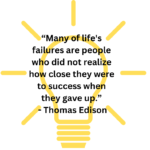Fortune cookies often deliver brief yet thought-provoking messages that can prompt deep reflection on our lives and relationships. Today's fortune, “A dubious friend may be an enemy in camouflage,” serves as a stark reminder to evaluate the people we trust and to be wary of those who may not have our best interests at heart. This message highlights the importance of discernment in friendships and the potential dangers of misplaced trust. Let’s delve into the various facets of this cautionary advice and explore how to protect yourself from hidden enemies disguised as friends.
Understanding the Nature of Dubious Friends: Recognizing the Signs of Inauthentic Relationships
The first step in safeguarding yourself from a dubious friend is to understand what characterizes such a person. A dubious friend may appear supportive and kind on the surface, but their true intentions are far from benevolent. Recognizing the signs of an inauthentic relationship is crucial to protecting yourself from potential harm.
Inconsistent Behavior: One of the hallmarks of a dubious friend is inconsistency. They may be warm and friendly one moment and distant or critical the next. This erratic behavior can leave you feeling confused and uncertain about where you stand.
Manipulative Tendencies: Dubious friends often use manipulation to achieve their goals. They might employ guilt-tripping, flattery, or deceit to influence your decisions and actions. Pay attention to how often you feel pressured or coerced by their words or behavior.
Lack of Genuine Support: A true friend supports you through thick and thin. In contrast, a dubious friend may only be present during good times or when they stand to benefit. They may be absent or unsupportive when you truly need help, revealing their lack of genuine concern for your well-being.
The Psychological Impact of Dubious Friendships: Emotional and Mental Consequences
The presence of a dubious friend in your life can have significant psychological impacts. These relationships can drain your emotional energy and erode your mental well-being. Understanding these consequences can motivate you to take action and protect yourself.
Erosion of Trust: Being betrayed by someone you considered a friend can severely damage your ability to trust others. This erosion of trust can extend beyond the individual in question, affecting your overall outlook on relationships and making it difficult to form new, healthy connections.
Increased Anxiety and Stress: Constantly second-guessing a friend's motives and feeling the need to be on guard can lead to heightened anxiety and stress. This emotional toll can affect other areas of your life, including your work, hobbies, and relationships with others.
Diminished Self-Esteem: Dubious friends may engage in subtle or overt forms of criticism and belittlement. Over time, this can chip away at your self-esteem, making you question your worth and capabilities. Recognizing this pattern is essential to breaking free from its negative impact.
Protecting Yourself: Strategies to Identify and Distance Yourself from Dubious Friends
Once you've identified the presence of a dubious friend, the next step is to protect yourself. This involves both recognizing the need for distance and implementing strategies to create a healthier social environment.
Trust Your Intuition: Often, your gut feeling is a reliable indicator of someone's true nature. If something feels off about a friend's behavior or intentions, don't ignore those feelings. Trusting your intuition can help you identify potential threats early on.
Set Boundaries: Establishing clear boundaries is crucial when dealing with a dubious friend. Communicate your limits and enforce them consistently. This can help prevent manipulation and protect your emotional well-being.
Evaluate the Relationship: Take a step back and objectively evaluate the friendship. Consider the balance of give and take, the level of support provided, and the overall impact on your life. If the negatives outweigh the positives, it may be time to distance yourself.
Seek Support from Trusted Individuals: Share your concerns with other trusted friends or family members. They can provide valuable insights and support as you navigate the process of distancing yourself from a dubious friend.
Rebuilding Trust and Fostering Healthy Relationships: Moving Forward with Confidence
After distancing yourself from a dubious friend, it's important to focus on rebuilding trust and fostering healthy relationships. This involves healing from the experience and being intentional about the connections you form moving forward.
Reflect on the Experience: Take time to reflect on the lessons learned from the dubious friendship. Consider what red flags you missed and how you can apply this knowledge to future relationships. Self-awareness is key to preventing similar situations in the future.
Nurture Positive Connections: Focus on nurturing relationships with individuals who have consistently shown genuine care and support. Surrounding yourself with positive influences can help restore your faith in friendship and create a supportive social network.
Prioritize Open Communication: Healthy relationships are built on open and honest communication. Make a conscious effort to communicate your feelings, needs, and boundaries with your friends. This fosters mutual understanding and respect, strengthening the foundation of your relationships.
Engage in Self-Care: Prioritize self-care to heal from the emotional toll of a dubious friendship. Engage in activities that bring you joy, relaxation, and fulfillment. Taking care of your mental and emotional health is crucial to moving forward with confidence.
The Long-Term Benefits of Vigilance: Sustaining Healthy Relationships and Personal Growth
Remaining vigilant in your relationships can lead to long-term benefits, including sustained healthy connections and personal growth. By applying the lessons learned from dealing with dubious friends, you can create a more fulfilling and secure social environment.
Enhanced Relationship Quality: Vigilance helps you identify and maintain relationships with individuals who truly value and support you. This leads to higher-quality connections that enrich your life and provide a solid foundation during challenging times.
Increased Emotional Resilience: Navigating the complexities of dubious friendships and learning to protect yourself builds emotional resilience. This resilience empowers you to handle future challenges with greater ease and confidence.
Personal Empowerment: Taking control of your social environment and making intentional choices about who you allow into your life fosters a sense of empowerment. This empowerment extends to other areas of your life, enhancing your overall well-being and personal growth.
In Conclusion
The fortune cookie message, “A dubious friend may be an enemy in camouflage,” serves as a powerful reminder to approach friendships with wisdom and discernment. By recognizing the signs of dubious friends, protecting yourself from potential harm, and fostering healthy relationships, you can navigate your social world with greater confidence and security.
Embrace the lessons learned from past experiences and apply them to build a supportive and trustworthy social network. Remember that true friends are those who uplift, support, and genuinely care for you. With vigilance and self-awareness, you can create a fulfilling and enriching social environment that contributes to your overall happiness and well-being.






